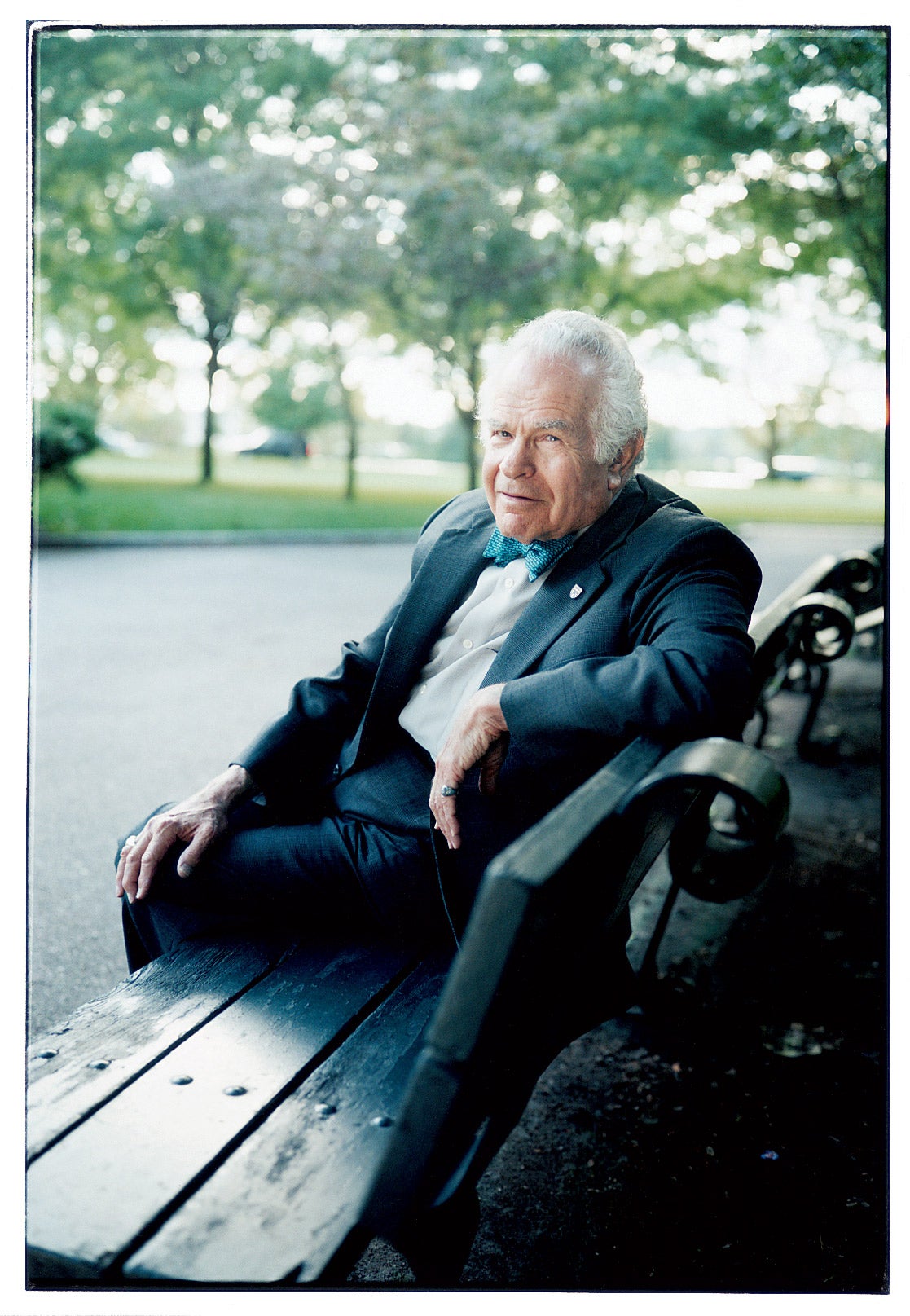A Conversation with Charles Hieken ’57
A principal at Fish & Richardson in Boston, Charles Hieken ’57 has practiced all aspects of intellectual property law for more than 50 years. He and his wife, Donna, recently made a gift to the school to establish the Hieken Professorship in Patent Law.
What got you interested in patent law?
Actually, I took a course in inventions and their management while I was in my graduate year at MIT. I suppose you could say that’s where it began. When I was in law school, I needed to work, and so I went back to MIT and applied for a position with the patent attorney at the Laboratory for Electronics. I went to work there in the summer of 1954 and worked there until I joined Fish, Richardson & Neave in 1956.
When you were in law school, were you one of the only students who had an engineering background?
I didn’t know of any others. I didn’t know at the time that Professor David Herwitz was an MIT graduate. I do recall that he asked his accounting class if there were any engineers in the room. I don’t think any hands were raised, besides mine.
What motivated you to make a gift establishing the Hieken Professorship in Patent Law?
I’ve always felt that the law school needed to have a strong program in patent law. When I wrote my third-year paper on a section of the Patent Act of 1952, there wasn’t a patent law professor on the faculty to supervise me. I approached Professor Archibald Cox to see if he might help because his father was a patent attorney. But he declined, and so Professor Donald Turner, who was an antitrust expert, supervised the paper.
Today, intellectual property is getting more and more important. The general law firms are expanding their intellectual property departments, and the backbone of intellectual property law is patent law. I knew that people could come in and teach, for example, for three years or so as visiting professors. But there was no continuity. We didn’t have a person who really concentrated on teaching and researching patent law.
Why do you think patent law is important to society as a whole?
Patent law tends to support innovation and the development of new ideas that really benefit humanity. It provides the incentive to go out and invest and make new things. And companies develop and grow as a result of their inventions. As you know, I was involved early on with the Bose Corporation. Bose is a great example of how good ideas can spawn a business that, today, employs thousands of people.
What do you think today’s students should learn before they graduate?
I think the sort of thing that Professors Andy Kaufman and David Wilkins teach in their professional responsibility course is very important. It’s not only important from the standpoint of ethics, but also in terms of maintaining decent relationships with other lawyers. I remember when I first started practicing patent law. The first thing my mentor did was sit me down and point out the section in the patent rules which says all business with the patent office shall be conducted with decorum and courtesy. This has stuck with me for my entire career. I may not always live up to it, but at least it’s something worth striving for, and I think it’s extremely important for lawyers to learn–and not only lawyers but other people too.
